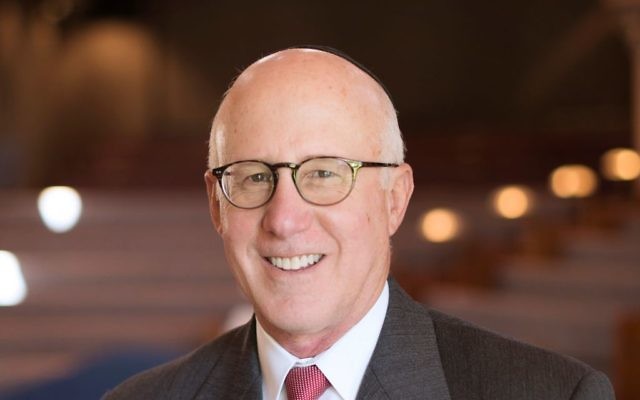Federation, JCC Undermine Synagogues
Support for Jewish Kids Groups makes families less likely to opt for membership in a shul.
As a CPA and business owner, I appreciate the importance of competition in our economy and the benefits it often produces for consumers. To a degree, competition is also useful among synagogues and Jewish agencies.
After all, if a congregant, volunteer or contributor has more appealing options, agency heads, volunteer boards and rabbis who are not responsive to their constituents risk watching them head out the door on their way to “the competition.” Though the analogy makes me uncomfortable, I believe it is a fair characterization of our Jewish community.
But there is a point at which competition among Jewish organizations begins to have detrimental effects. We have reached that point in Atlanta.
Thanks to the actions of the Marcus Jewish Community Center and the Jewish Federation of Greater Atlanta, over the past several years synagogues have increasingly found themselves squeezed out of the market for congregants.
Take, for example, the evolving partnership between the Marcus JCC and Jewish Kids Groups. The Marcus JCC hosts JKG’s alternative Hebrew school on its Dunwoody campus.
This initiative, which is underwritten in part by Federation, can succeed only at the expense of synagogues. In fact, Federation seems to promote this competition on its website by describing the initiative as “reimagining Jewish education and community for affiliated and unaffiliated families.”
If that isn’t enough, JKG’s own website includes a Q&A that asks: “I want my kids to attend, but I don’t belong to a synagogue. Is that okay?” The answer is an emphatic “YES!”
Now, in its aggressive efforts to attract more students, JKG is opening a location in the back yard of several North Fulton synagogues.
The lines get even blurrier when you consider that the Marcus JCC has a full-time rabbi on staff whose responsibilities include creating programming traditionally offered inside the walls of a synagogue.
This positioning strikes at the very heart of synagogue survival. The fact is, the gateway to synagogue affiliation for many families is the religious school and associated youth programs.
What begins with a simple finger painting of the Ten Commandments posted on the refrigerator or the singing of festive songs in Hebrew on the Sunday afternoon ride home quickly leads to deeper connections to the faith for the entire family. The seed that is planted on Sunday mornings and during the week blossoms into opportunities for having meaningful worship, engaging through adult education or addressing the needs of the broader community.
And, yes, oftentimes engagement in synagogue life leads to affiliation with, and support of, other Jewish organizations, including the Marcus JCC and Federation.
We know from experience that if families bypass this important gateway to the synagogue — whether it be for lack of interest, financial reasons or the lure of non-synagogue-based programs — the chances of a return become remote. For many synagogues, this is an existential concern.
It’s difficult to understand why the Marcus JCC and Federation seek to expand their reach in these ways. Though many rabbis and synagogues in the community have raised concerns to them, the response has been silence. That is simply unacceptable.
As programs like the one described here accelerate the Jewish community’s march toward “fee for service,” synagogues struggle to make ends meet, to fill the pews and to deliver kehillat chesed (caring community) at congregants’ most vulnerable moments.
I encourage all the leaders involved in these programs to engage in a dialogue with rabbis and others on the front lines to explore ways to promote synagogue affiliation and the benefits it offers agencies in the broader community.
Ron Swichkow is an East Cobb resident and former synagogue president.




comments